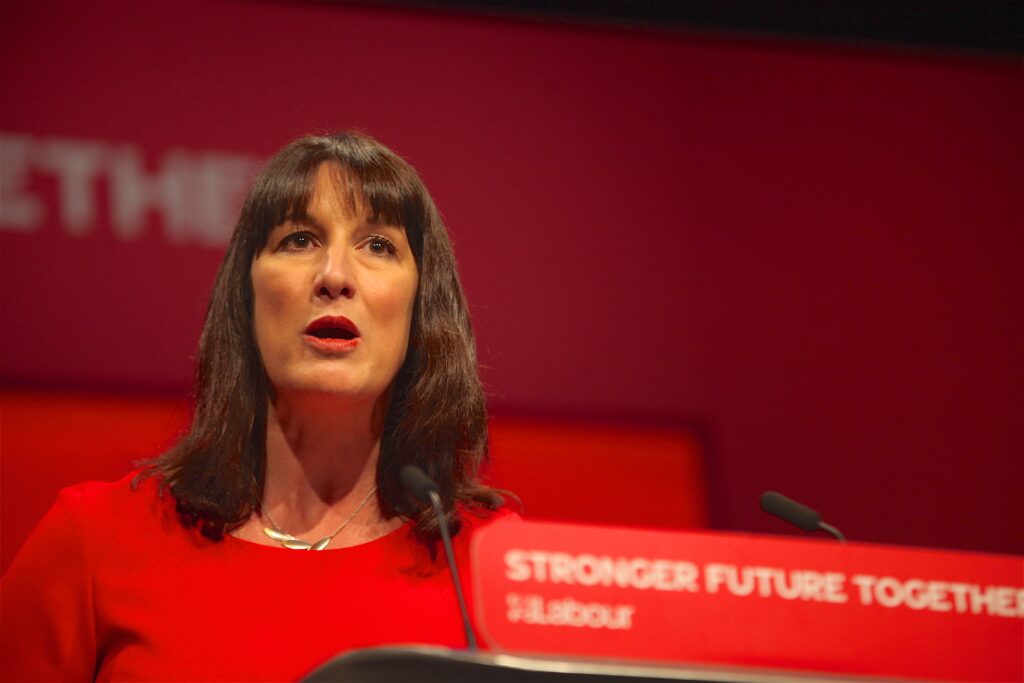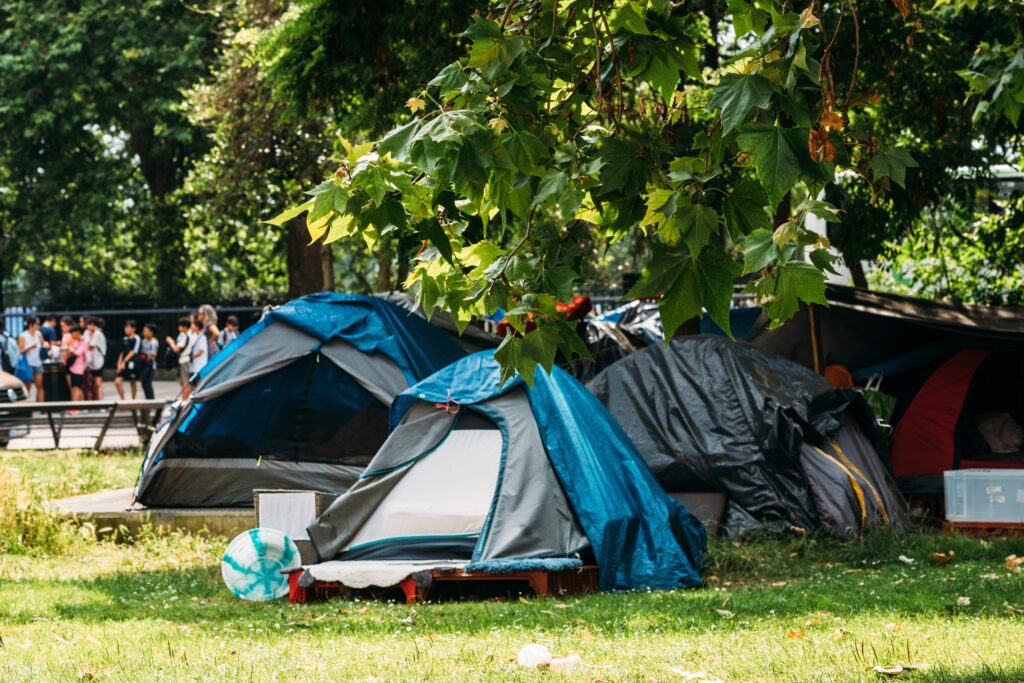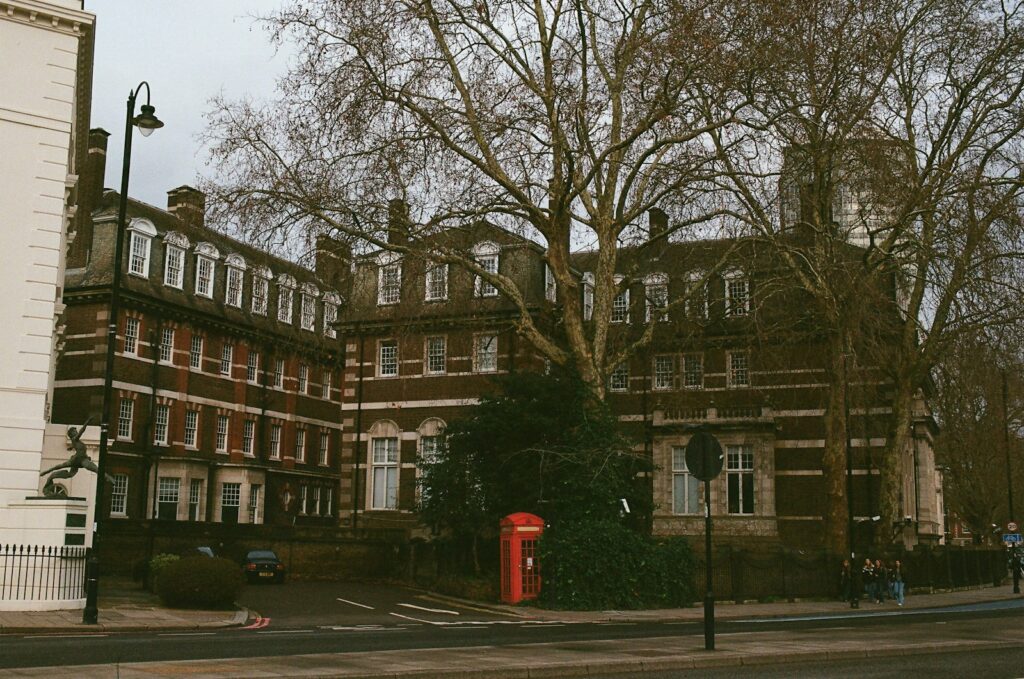There are at least 309,000 homeless people in England today – a figure that’s been rapidly increasing since the cost-of-living – and many experts have claimed tackling this issue should be a priority for the next prime minister.
As of this morning, polls have opened their doors in the UK for the first July General Election since 1945. Polling stations, which have been set up in buildings like churches, community halls and schools, are set to be open between 7:00 and 22:00 BST on Thursday.
Ahead of polling stations closing later, below you will find a run-down of Labour’s and the Conservative’s parities pledges to help tackle the ongoing housing crisis.
Conservatives
The Tory party have laid out plans to deliver 1.6 million new homes should they be successful today. There is a promise to do this in the ‘right places while protecting our countryside.’
Back in 2021, the party announced similar goals as they planned to produce 300,000 new houses by the mid-2020s however, according to the latest government data, they only managed to produce 234,000 a year.
In addition to creating new places for people to live, the party have also outlined that, should they be re-elected, they plan on bringing back the Renters (Reform) Bill which was first introduced in 2019. In their manifesto, the party is dedicated to passing the Bill, ‘to deliver fairness in the rental market for landlords and renters alike’.
Plans include abolishing Section 21 – ‘no-fault’ – evictions and strengthening other grounds for landlords to evict private tenants guilty of anti-social behaviour. A number of charities have supported this decision including Shelter – the UK’s leading homelessness charity. Research by YouGov, which was commissioned by Shelter when the bill was first suggested, showed 943,000 tenants had been served Section 21 notices – equivalent to more than 500 renters per day.
However, various delays and liaisons with landlords cast concerns that the bill was more in favour of who was renting out properties rather than the individuals living in them. This sparked the creation of the Renters’ Reform Coalition (RRC) which is comprised of 20 leading housing charities and campaign groups. They sent a letter to the government which criticise MPs for meeting with landlords twice as often to discuss amendments.
The letter read: ‘This legislation is intended to give the impression of improving conditions for renters but in fact it preserves the central power imbalance at the root of why renting in England is in crisis.’
If the Renters Reform Bill is re-introduced into parliament any changes that it wants to implement would require a law to be passed.
Although the future of the government is currently hanging in the balance, Jacob Young, who currently serves as Parliamentary Under-Secretary of State for Levelling Up, has said that the Renters Reform Bill ‘will deliver our manifesto commitment to abolish Section 21 no-fault evictions and ensure a fairer private rented sector for both tenants and landlords.’
Labour
In the Labour party’s manifesto, they have created a goal of delivering 1.5 million new homes, as part of the Kickstart Economic Growth mission. Within this project, Keir Starmer – leader of the party – has said he wishes to put councils and communities at the heart of housebuilding in their area. This could be a pledge that will be well received in London as new research has just revealed the majority of individuals living in the capital city have lost faith in the national government and would favour a devolution deal.
Similar to the Conservatives, Starmer has also revealed his party will be prioritising building on Brownfield sites. What’s more, the party plans to release and prioritise ‘lower quality ‘grey belt’ land’ where 50% of properties will be earmarked as affordable. This particular promise has caused concerns among environmentalists, though Labour have claimed there will be ‘golden rules’ to ensure any development benefits both the community and surrounding area.
Speaking of benefitting the community, Keir Starmer has further promised to introduce Awaab’s Law should he be elected. It’s no secret that growing numbers of homelessness and potential evictions are a major issue in this country, but there is an argument that if people are placed into housing riddled with physical health risks they aren’t much better off.
The law was originally introduced into the social sector in July 2023 following the tragic death of two-year-old Awaab Ishak, who lost his life after being exposed to too much toxic mould in his one-bedroom flat in Rochdale. The law will require landlords to investigate hazards within 14 calendar days and begin repairs a following seven days after the investigation. For emergency repairs, landlords have 24 hours to fix any issues.
Staying on track with what Labour have in common with the Conservatives, the party also wish to abolish Section 21 evictions immediately. Though Labour has previously shared there are ‘significant doubts’ around the version of the Renters (Reform) Bill as introduced, due to multiple provisions being removed from the bill after experiencing staunch resistance from Conservative back-bench MPs.
One of the changes Keir Starmer wants to implement within the Bill is requiring landlords and letting agents to state the amount of rent payable when advertising a property and, preventing them from encouraging prospective tenants to offer to pay more than this. Although, a prospective tenant would not be prohibited from offering to pay more than the advertised rent under the proposals.
It seems this new rule would help tenants from constantly being out of pocket – especially after research from the New Economics Foundation think tank last year found renters were paying £1,200 a year above the advertised rate – although Starmer is yet to confirm details on how this idea would actually run.
Images: Emily Whitehouse and Shutterstock
More on the General Election:
Londoners distrust in government suggests devolution could be the future
Red vs blue: Everything you need to know about 2024’s local elections

















Leave a Reply